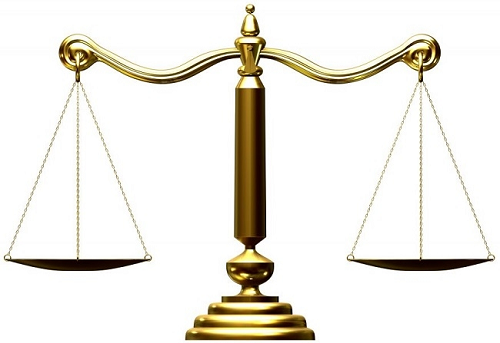
Breaking monopoly of Ghana School of Law constitutional - Law lecturer
The Ghana Legal Council has been advised to develop guidelines to allow individual and private sector participation and investments in legal education in the country to support the development of the legal sector.
A Senior Lecturer of the Faculty of Law of the University of Ghana, Dr Abdul Basit Aziz Bamba, said Article 25 of the 1992 Constitution allowed private individuals to establish educational institutions at all levels of education so allowing others into legal education was constitutional.
He said this at the Jurists' Conference organised by the Faculty of Law of the University of Cape Coast in Cape Coast yesterday.
Conference
The conference, the seventh in an annual series, seeks to provide a platform to engage and educate law students on emerging challenges and realities of law practice and its development in the country.
It was on the theme: “Rule of Law, Democracy and COVID-19: Perspectives From The Bench and the Academia.”
Dr Bamba said efforts to urgently break the monopoly of the Ghana School of Law as the sole institution to provide professional law courses in the country must be revisited.
He said breaking the monopoly would allow many young people who were interested in studying law to have the opportunity to do so.
The law lecturer called for the resourcing of legal education institutions with high level information and communication technology to ensure effective teaching and learning considering the challenges the COVID-19 pandemic posed to traditional forms of teaching and learning.
He said the outbreak of the pandemic had brought to the fore the crucial need to efficiently explore ICT in teaching and learning in legal education.
Rule of law
Speaking on the topic "Rule of Law, Democracy and COVID-19, the Perceptions of a Judge,” a Justice of the Sekondi High Court, Justice Dr Richmond Osei Hwere, said the delivery of justice in the country had become more challenging for the law courts due to the current COVID-19 pandemic.
He stated that in both criminal and civil cases, the courts struggled to maintain effective balance in delivering justice for fear of exposing the people to the virus.
In most cases, he said, accused persons or people on remand suffered a great deal of delay in the delivery of justice.
“The impact of the virus on justice delivery became apparent in the early stages, leading to the increased delay in prosecution in both criminal and civil cases”.
Deepening inequalities
He stressed that if stakeholders did not institute the necessary measures to address the challenges, the situation could risk deepening inequalities and possibly creating new divides.
Justice Hwere emphasised that the pandemic had brought to bear the inefficiencies in the various prisons, including space, and inadequate health services which increased the vulnerability of accused persons.
Harmonious legal system
That, he said, should inform the decision of the court in giving bail, adding that decisions of the courts must be balanced among individual liberties, justice, public safety and health and the judicious use of national resources to ensure harmony in our legal system.
He admonished that notwithstanding the challenges the pandemic presented, law courts must “endeavour to interpret the law in consonance with the legal regime to ensure harmony in our legal system”.
The Dean of the Faculty of Law, UCC, Dr Peter Atupare, said the conference would provide out-of-lecture-hall exposure for the students and further build their confidence for further endeavours.
